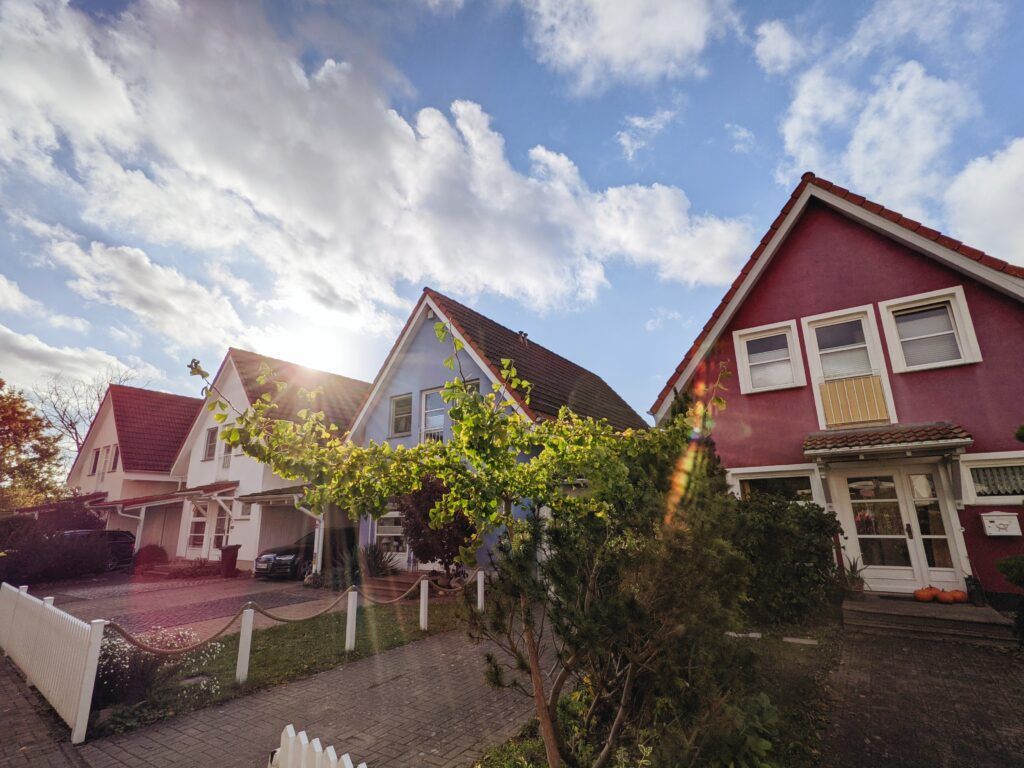Single-Family vs. Multi-Family Properties: Which is Better?

When many of us hear “residential real estate,” the default image in our minds is a single-family home, perhaps with a white picket fence and a grass lawn.
But of course, there are several different types of dwellings that people (families) can live in. The breakdown between these two is pretty simple: single-family and multi-family. A multi-family residence can be anything from a duplex to an apartment building.
The important question is: which should you invest in?
There’s no winner-takes-all answer for this one. Both have their pros and cons. I have multiple years’ experience investing in both types, and in this article I’ll go over each so that by the end, hopefully you’ll be able to choose the best option for yourself. (Hint: you can definitely invest in both, at different stages of your career. That’s what I have done).
Let’s start with single family properties, since that’s the one that most people are more familiar with.
Single Family Properties: At A Glance
Single properties are defined as a property outfitted for a single family. In everyday language, a house (or a condo or townhouse).
Of course, people are creative with space and more than one family or group of individuals may choose to occupy the same home. But the idea is that it is a structure on a property to comfortably accommodate the needs of just one family.
Typically the sellers you will deal with will be both investors and end-use sellers. Likewise, as a seller you will encounter both investors and end-use buyers.
Pros:
Single-family properties, because they are usually smaller and therefore less costly, typically have a lower financial barrier to entry. You will usually have more financing options available as well — including an FHA loan if it’s your first time buying a home.
Single-family properties are more familiar and therefore more comfortable for most people. Many of us have lived in a single-family home for most of our lives. The thought of owning and maintaining a single house is less intimidating than owning and maintaining a large apartment complex.
You will probably find yourself dealing with fewer maintenance calls if you are leasing a single-family property. Tenants who rent a house instead of a unit at a giant complex are more likely to see their landlord as a person of modest means — whether or not that is actually true. Because all they can see is the single property they live on, they’re less likely to associate you, the owner, with being a corporate figure. As a result they are more likely to not want to “inconvenience” you with superfluous maintenance requests. This is a quirky bit of psychology but it’s been true to my experience.
Cons:
Since a single-family property only accommodates one family (read: one paycheck for rent each month), your income from rent dries up completely as soon as that family or individual moves out. There are no other renters/units to buffer you. You will need to find new renters as soon as possible in order to offset your monthly mortgage payment.
There is also usually no “discount per unit” when buying a family property or even multiple family properties. This is something we’ll discuss more in the next section.
Multi-Family Properties: At A Glance
Multi-family properties can come in the form of everything from a duplex (a property that houses two families) to an expansive complex with multiple units.
The range and differences between them are beyond the scope of this article — one thing I will say, because it’s obvious, is that the simpler/smaller the property, the lower the barrier entry is to financing and managing it. A duplex, for example, is much less complicated to manage than a large apartment building. And apartments themselves come in all ranges of size and number of units.
Pros:
Although there is a higher barrier to entry cost with multi-family properties, there is a lot of value in multi-family properties once you are able to finance one. The actual money to purchase may be higher upfront, but the potential return of investment is often better in the long run than with a single-family property. Multi-family properties may also include a “discount per unit,” allowing you a better value the more units you purchase.
Multi-family properties offer value in multiple ways. One particular benefit is having a lot of the infrastructure centralized: one roof over multiple tenants’ heads is more cost-efficient to repair than multiple roofs over multiple tenants’ heads. When tenants all live close to each other in the same complex, it’s easier to “do the rounds” with maintenance and take care of tasks.
Turnover is a reality with any rental property, but with multi-family properties, especially those with more units, you will always have remaining tenants to help buffer your monthly mortgage payment while you look to fill that vacant unit. Word of mouth spreads, and when tenants enjoy living at your complex, others often come knocking.
One final, although less obvious pro to buying multi-family properties is that when you either buy or sell, your transaction will be with another investor — not an “end user.” This means the transaction is likely to be more straightforward and less emotional — you won’t be dealing with sellers who are sentimental about their former home, or buyers who are desperate to move in even though their approved loan is less than ideal.
Cons:
You will face a higher barrier to entry with purchasing a multi-family property, and usually will need a down payment of 20% or even 30%. While multi-family properties can be very profitable, they are not always easy to start out with for this reason. “Bargains” exist, but even when they do, they will cost much more than a single-family property.
You will also be doing a lot more maintenance. One reason for this is public space: multi-family properties have common areas, whether in the form of landscaping, front desk office or recreational area (like a swimming pool).
Also, tenants of multi-family properties are usually more inclined to make maintenance calls. They see your property as a large and “professional” outfit and expect that someone will be on hand to respond to maintenance calls quickly.
Conclusion:
Both single-family and multi-family properties can be awesome investment choices. The best starting place is your own financial situation and what you feel comfortable with.
Starting out with a single-family property is usually a more conservative choice and may make the most sense. But if you have the means, a multi-family property is a very worthwhile investment endeavor. I recommend starting out more conservatively and then trying (buying) more properties/property types as you gain experience.



